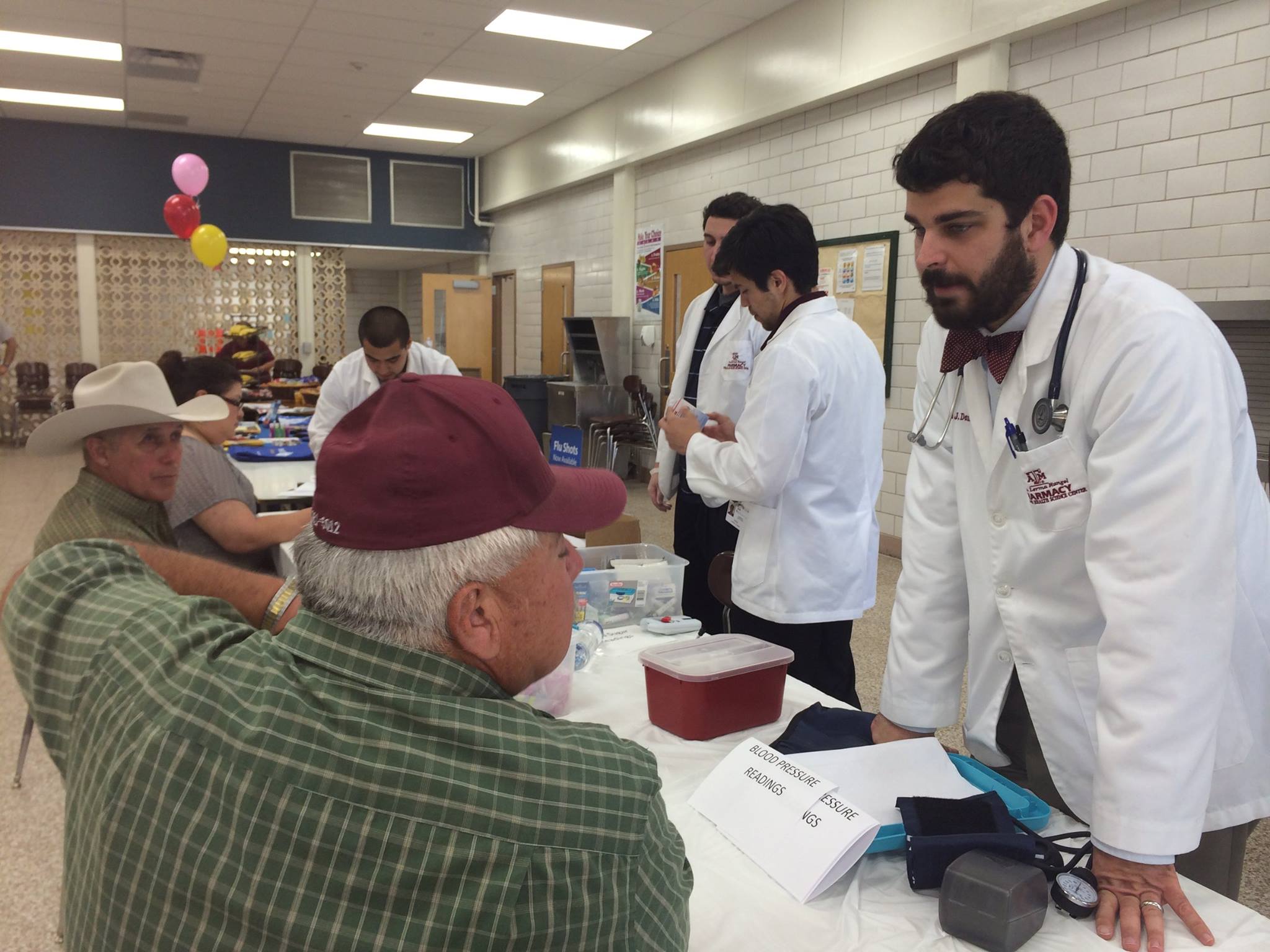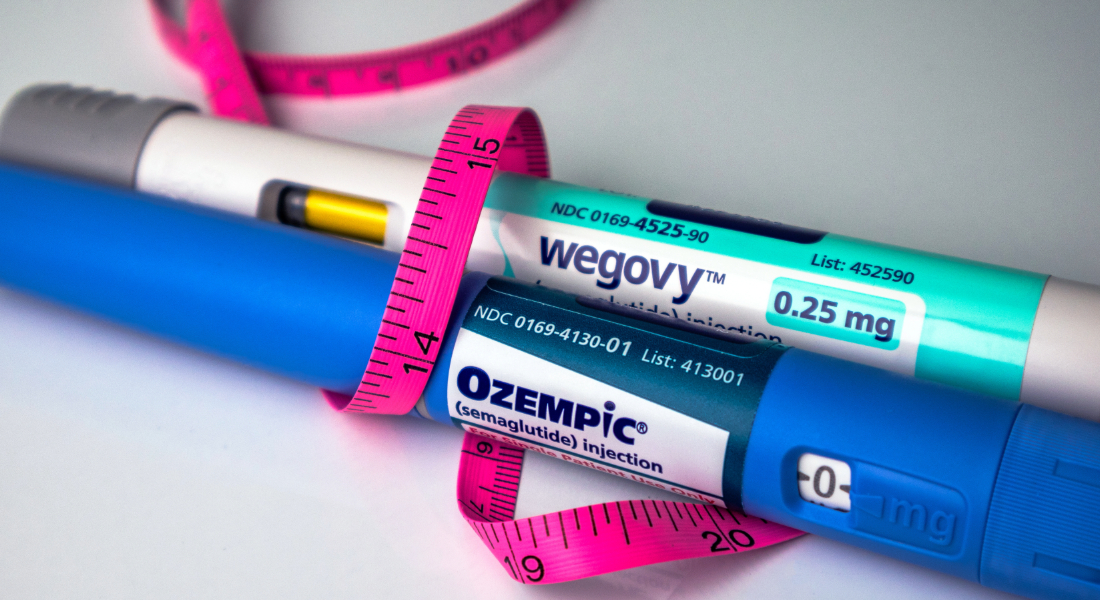Pharmacy students impact lives, one patient at a time


A patient sat down to their have blood pressure, cholesterol and blood sugar levels checked at the Kleberg County Health Fair in the spring. After checking the levels, a professional student pharmacist asked how the patient was feeling. The patient answered, “Well, I do have a headache and I am kind of tired, but I think I am just stressed from working all day.”
Turns out, the patient had high blood pressure and was unaware of the problem.
“That’s my favorite part of community outreach,” said Bryan Donald, third-year professional student pharmacist at the Texas A&M Health Science Center Irma Lerma Rangel College of Pharmacy. “When a patient does not even know something is wrong and we have the opportunity to let them know they need to see a doctor; it’s the best feeling in the world. We made a difference and potentially saved a life.”
Patients respond well to student volunteers, said Donald, who is from Corpus Christi, Texas. “They see us and know we are here to help them. They thank me for coming even before I begin to help them,” he said.
One-third of the curriculum for professional student pharmacists includes practicing in health care settings and many of these experiences focus on serving communities in the South Texas region. Since 2011, students have provided vital services to patients in underserved communities and touched more than 50,000 patients’ lives.
To enhance service learning projects, the Texas A&M Rangel College of Pharmacy received a $5,000 grant from the Coastal Bend Community Foundation for professional student pharmacists on Sept. 10 at the Del Mar Economic Development Center in Corpus Christi.
“Through service learning projects, professional student pharmacists interact with the community to improve public health in the South Texas region,” said Mary Chavez, Pharm.D., interim vice dean, professor and chair of pharmacy practice. “Service learning educates professional student pharmacists, and these events highlight the increasing role of the pharmacist as a prominent member of the health care team.”
The Office of Experiential Education is the backbone for service learning at the college. The college offers a variety of learning opportunities for in-depth exposure to, and active participation in, patient care throughout a student’s academic career.
Experiential education supports and fosters the individual goals of each student, according to Anna Brozick, Pharm.D., assistant professor and director of introductory pharmacy practice experience (IPPE).
“This is done while allowing students to transform their classroom knowledge into skills, attitudes, values and behaviors when interacting with patients and other health care professionals,” she said.
Experiential education begins in the first year of curriculum for professional student pharmacists. The early exposure to direct patient care establishes the attitude of caring for others. Beginning in the second year, and continuing through fourth year, students are given increasingly advanced opportunities to practice in pharmacy settings, including community or independent pharmacies, ambulatory clinics, surgical centers, veterinary clinics, community hospitals as well as large teaching hospital institutions.
Professional student pharmacists reach South Texas communities in various ways by offering blood pressure, blood glucose, and cholesterol screenings; smoking cessation education and counseling sessions; hands-on activities to teach children about medication safety, nutrition and exercise. Funds from the Coastal Bend Community Foundation will be used to support cholesterol screenings, blood pressure monitoring, health literature, and motivational materials for smoking cessation and cookbooks.
The Texas A&M Rangel College of Pharmacy opened its doors to students in 2006 to meet a critical need in the South Texas community where there is a shortage of pharmacists. Today, more than 41 percent of the college’s graduates return to South Texas to help underserved populations. The college’s leadership strives to entrench a culture of excellence, education, research, practice and patient care to each professional student enrolled. Within a record amount of time, the college has been ranked in the Top 50 for pharmacy programs in the country, according to the recent US News and World Report.
The Coastal Bend Community Foundation was incorporated in 1981 with the mission of enhancing and improving the quality of life in the seven counties of the Coastal Bend. The Foundation serves donors by providing a vehicle for the establishment of various types of charitable funds designed to fulfill their wishes. Since its inception, the Foundation has distributed more than $72 million from donor contributions and revenues to scholarships to students and grants to nonprofit organizations.
Media contact: media@tamu.edu


